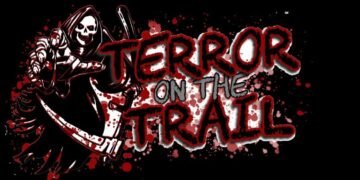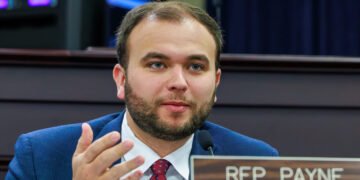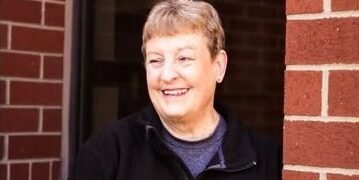(This article first appeared in the May print edition published April 30)
During my time working at the Port, I know that working with TAYLRD (Transitional Aged Youth Launching Realized Dreams) and using reality therapy and choice theory has numerous benefits. First, reality therapy and choice therapy are methods that build rapport immediately. The youth I work with, ages 16-25, also know that they are their own expert, and it is my job, as a therapist, to work with them. With these therapies, we explore their behaviors that help them get what they want, and conversely, those behaviors that keep them from achieving what they want. Let’s take a close look at these therapies.
Everyone wants to be heard
TAYLORD-age clients have different struggles and challenges than those of us from Generation X, Boomers or Generation Z. Social media has become a major component of their social interactions and is a focal point of their self-esteem and even self-actualization. The need for love and belonging is important to all of our well-being, but it could be argued that a lot of younger folks are still in the process of finding out who they are. Likes, dislikes, re-tweets, direct messages, etc., etc., often play a role in how they see themselves and if they belong. Many in this age group just want to be heard. Counselors must let them know they are heard and that their thoughts, feelings, emotions and physiology are equally important.
What the outside world wants
“Ask: What do you think people want from you?” With this question, the young people are asked how they view the world as it affects them. Scaling questions follow in which clients express the importance of and expectations of their family, friends, schools, co-workers, supervisors, society in general and so on. It is especially important to TAYLORD age clients that counselors remain nonjudgmental and possibly summarize to them what we heard to let them know they are heard and their opinions are valued. Don’t be surprised when you shock and a response, “Wow, nobody has really asked me that before.” You are listening and actively engaged in helping them get their wants and needs met, and this often doesn’t happen for many youth.
Increasing external control philosophy
In the TAYLORD age clients’ perspective, a positive therapeutic session helps them both manage behaviors and build skills for the future. By using reality therapy and choice theory clients see benefits quickly. They enjoy being the captain of their own ships. Teaching internal locus of control will help people take accountability for their successes and failures. Looking within at an early age helps build character and responsibility.
Building the relationship
Working with transitional aged youth requires you to build a working relationship. It can’t be completed in your first session. It requires showing care, building trust, letting yourself become a bit vulnerable and practicing some personal disclosures, such as hobbies, taste in music, food, or art, and even sharing a few dislikes. This sets the tone for cooperation and respect as opposed to intolerance and judgment. This relationship does not mean becoming manipulated or crossing boundaries. Through unconditional acceptance, your inclusion into their world is more likely, and the young person is less likely to move into survival mode.
Internal locus of control
Internal locus of control illustrates how a reality therapist can help someone move from feeling powerless to feeling a sense of inner control. For instance, a younger client walks into your office and reports that he has to go to court and the only help he needs from you is to keep him out of jail. A reality therapist can show clients they have more control over things than they realize. A therapist can work harder than just keeping a youth out of jail and show young people the choices that led them here. Although they are not from the same generation, therapists and young people can connect through humor and a common need for fun. Transitional aged youth may resist if a counselor introduces internal locus of control philosophy too soon. This will be determined session by session.
Teaching the skill of honest self-evaluation and starting a plan
When we learn to be honest with ourselves about our successes, failures, strengths and weaknesses, we begin to display an internal ability to progress. TAYLRD-age have been parented by a generation that were raised with the guise of external control. We must learn the art of honest self-evaluation. Once we master this, we can begin a SAMIC plan. This is best when put into the clients’ own words and is comparable to a life plan. Plans need to be Simple (S), Attainable (A), Measurable (M), Immediate (I) and Committed (C). Self-starting plans are also more effective than self–stopping. This is as simple as it sounds. What can a client start to do to achieve their goals, objectives and interventions as opposed to what the client can stop. Take someone struggling with substance abuse. It is easier for their treatment plan to include replacement behaviors, such as meditation, journaling or joining a support group, than stopping their substance use. This gives them a stronger internal locus of control and helps them to see that outside factors are not controlling their progress.
Conclusion
Today’s youth have numerous challenges to their success and overall mental well-being. They have the illusions of love and belonging with social media. The stresses of inflation and constant military or law enforcement escalation also decrease their internal locus of control. Reality therapists must work cohesively to increase their internal control. We are the colonels of our own tanks, the captains of our own ships, and once we can take responsibility for our choices and actions, we commit to self-growth. Starting this with young people gives them a head start in being the keyholder to their own happiness. If we can display to our clients that they are the experts of themselves and we are there to help them achieve what they want, rapport is quickly built and the therapeutic process has begun.
David Sturgeon, LPCA, is a therapist who works at The Port youth center Monday-Friday 3-6 p.m. He is also an intensive in-home therapist serving Henderson, Union and Daviess counties. Reach him at sturgeondavid31@yahoo.com.


















